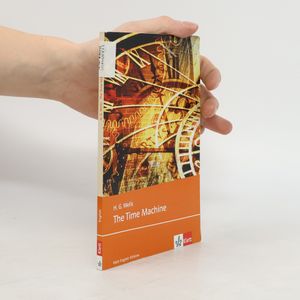The book is currently out of stock

More about the book
Set in a haunting future 800,000 years ahead, the narrative explores the consequences of unchecked technological advancement through the lens of time travel. Originally published in 1895, it reflects H. G. Wells's concerns about the societal impact of technology, influenced by his socialist views. The depiction of the Eloi serves as a cautionary tale about the potential dangers of progress, making it a pivotal work in science fiction that raises enduring questions about the balance between innovation and societal welfare.
Publication



- 2024

- 2024

- 2024

- 2024

- 2024

- 2023

- 2023

- 2023


- 2023

- 2023

- 2023

- 2023

- 2023

- 2023

- 2023

- 2022

- 2022

- 2022

- 2022

- 2022

- 2022

- 2021

- 2021

- 2021

- 2021

- 2021

- 2021

- 2021

- 2020

- 2020

- 2020

- 2020

- 2020

- 2020

- 2020

- 2020

- 2020

- 2020

- 2020

- 2020

- 2020

- 2020

- 2020

- 2020

- 2020

- 2020

- 2020

- 2019

- 2019

- 2019

- 2019

- 2019



- 2018

- 2018

- 2018

- 2018

- 2018

- 2018

- 2018

- 2018

- 2018

- 2018



- 2017

- 2017


- 2017

- 2017


- 2017

- 2017

- 2017

- 2017

- 2017

- 2016




- 2014

- 2014

- 2013

- 2013

- 2013

- 2013


- 2011

- 2010

- 2010

- 2010

- 2009



- 2008

- 2008

- 2008




- 2005

- 2004

- 2004

- 2004

- 2004

- 2002

- 2001






- 1985












Payment methods
We’re missing your review here.